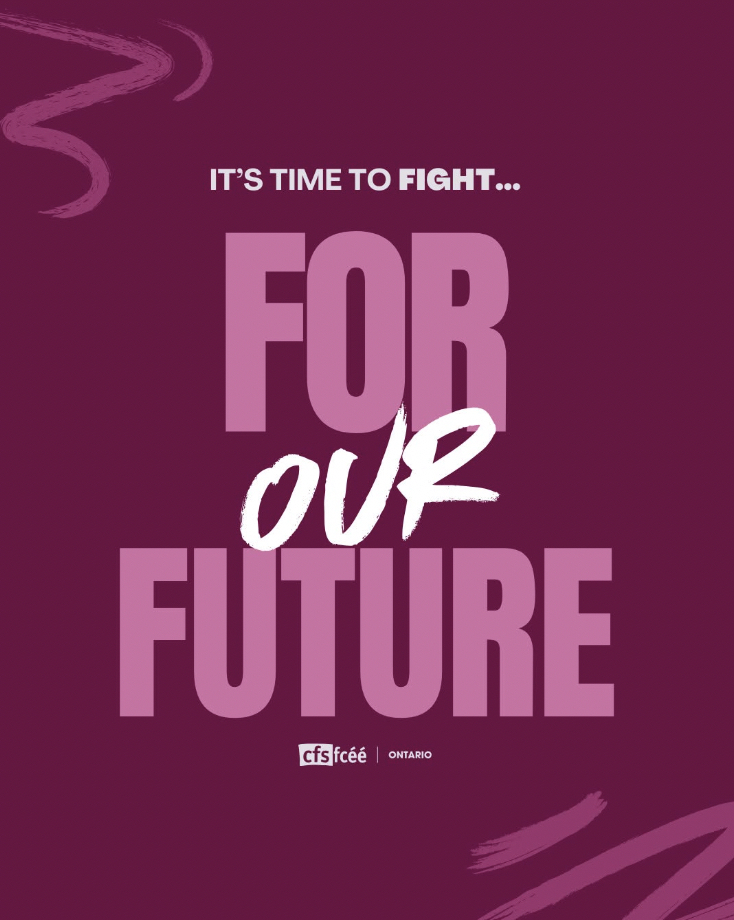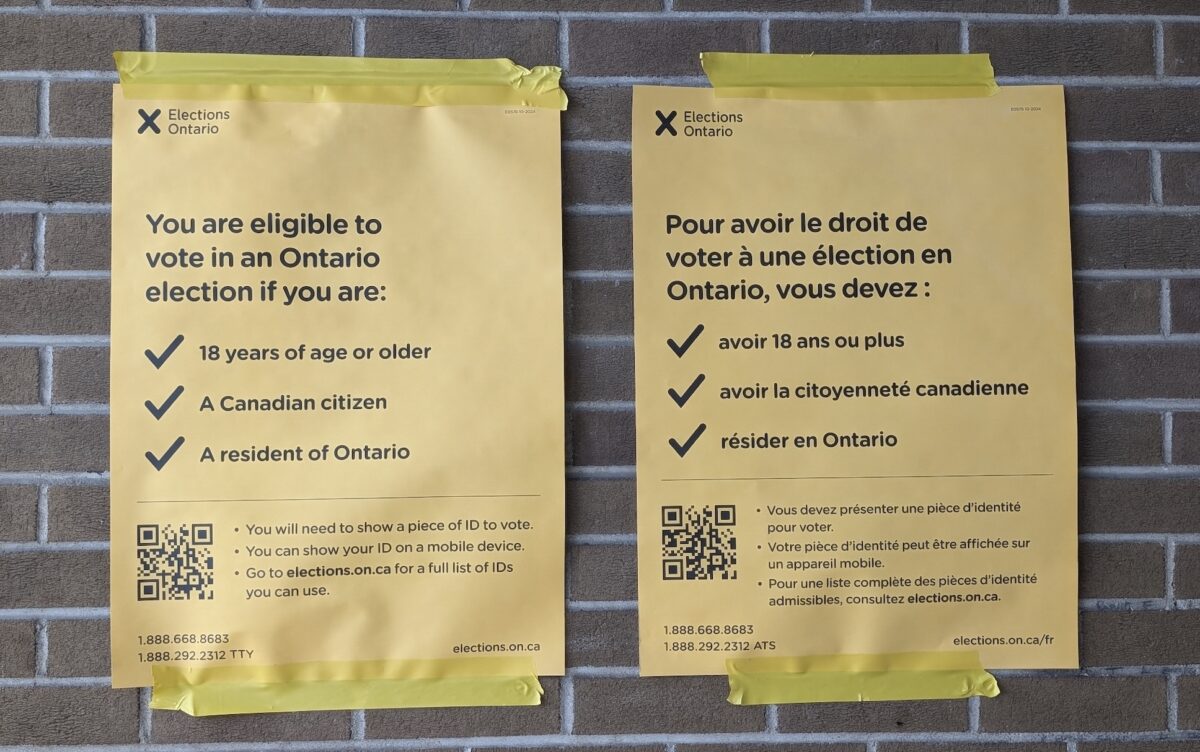After making a strong push to get young people to the polls on Feb. 27, the federation representing 350,000 college and university students in Ontario is lamenting the re-election of a Progressive Conservative government that it believes “will not prioritize post-secondary education and students.”
The Ontario branch of the Canadian Federation of Students worked hard to motivate and mobilize postsecondary students to vote and to urge parties and candidates to prioritize post-secondary education over corporate interests. That effort did not work in the end.
With tuition fees and the cost of living rising, the CFS saw the election as a chance to elect a government that would invest in colleges and universities.
“Students and workers are familiar with this Conservative government and their track record of cutting public services without hesitation and ignoring calls for more public funding for colleges and universities,” the federation said in a statement after Premier Doug Ford and his party won a third straight majority government.
“Students know that this government will not prioritize post-secondary education and students.”
Adaeze Mbalaja, Ontario chairperson of Canadian Federation of Students-Ontario, said at the outset of the campaign that students are “exhausted” by years of underfunding. She said occasional one-time funding announcements by the province have been a “band-aid” that failed to seriously address the financial crisis facing universities and colleges.

The federation started the For Our Future campaign, encouraging students to vote for candidates who support public education. The campaign called for free tuition, better protection for international students, stronger student organizing rights and a shift from loans to grants.
With more than 350,000 members across the province, the federation believed students had the power to influence the outcome. CFS leaders called the vote a crucial moment to elect representatives who would advocate for their needs and properly fund Ontario’s post-secondary system.
According to Elections Ontario, 45.4 per cent of eligible voters cast ballots last week. It was a slight increase from the lowest ever turnout of 44.06-per-cent in 2022, the previous election.
Carleton University student Emily Plakholm is passionate about the right to vote.
“I know schools like Queen’s and Carleton have been dealing with serious financial issues, and tuition costs are becoming a bigger problem,” said Plakholm. “While that wasn’t my main priority when voting, I do think affordability in education is something that should be addressed more.”
Plakholm said students should be more informed about political decisions, especially considering the current economic climate and how provincial policies affect issues such as transportation, housing and groceries which are among the many problems affecting students.
“The rising cost of food and everyday essentials is also something I struggle with as a student, ” said Plakholm. “It’s already hard enough to afford basic necessities while balancing school, so I really wish there were measures in place to bring food prices down.”
“Making voting more accessible is important. Many students struggle to find the time between work and other responsibilities. Having voting stations in schools or more convenient locations could make a big difference.”
— Emily Plakholm, Carleton University student
Plakholm says she believes healthcare was a major issue in the election, with many people demanding the province do more action to reduce wait times and improve access to family doctors.
“Yeah, one of the biggest issues for me is the long waiting times in hospitals. It’s frustrating to see how much healthcare has declined, and the delays in getting medical attention make it really difficult for people who need care urgently,” said Plakholm. Since Ford took office in 2018, many critics have highlighted the long wait times in hospital emergency rooms and the shortage of doctors and nurses. The Auditor General of Ontario says the average wait time for medical care has increased 30 minutes from 2013-14.
Plakholm suggests that voter turnout should be improved by social media which could allow younger generations to be more informed with what is going on in the world. However, many information sources are spewing misinformation to young voters, she believes.
“I wouldn’t say social media was super helpful in this election, mostly because of how much false information circulates online,” said Plakholm. “With AI-generated content becoming more common, it’s hard to know what’s real and what’s not. That kind of misinformation can make it difficult for young voters to make informed decisions.”
Still, Plakholm sees use of social media as an advantage for politicians seeking to connect with their voters and along the way improving government transparency.
“I do believe politicians want to engage with younger voters, but they don’t always know how to do it effectively,” said Plakholm. “There’s such a big generational gap, and sometimes it feels like they’re out of touch with what really resonates with us.”

To encourage more younger voters to turn out at election time, Plakholm suggests making polling stations more available on campus and in places more accessible for students.
Also, “I think better education on what each party stands for would really help, because a lot of people don’t vote simply because they don’t fully understand their options,” said Plakholm. “Making voting more accessible is important. Many students struggle to find the time between work and other responsibilities. Having voting stations in schools or more convenient locations could make a big difference.”



